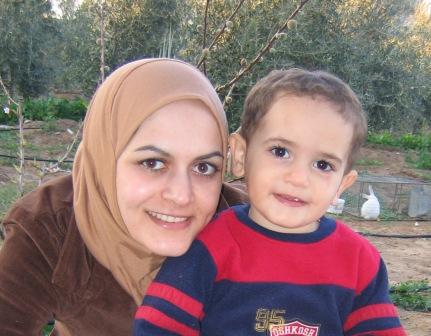Journalists without borders
 What is on the horizon for journalism and where might it intersect with the semi-professional blogger? In particular, what will stop the slow descent of Australian journalistic standards? The standards won't change, says Dr John Cokley, new journalists who apply old standards and perhaps some new ones will simply rise up to take over the role of those who we call journalists today!
What is on the horizon for journalism and where might it intersect with the semi-professional blogger? In particular, what will stop the slow descent of Australian journalistic standards? The standards won't change, says Dr John Cokley, new journalists who apply old standards and perhaps some new ones will simply rise up to take over the role of those who we call journalists today!Ripped wholesale from today's Crikey: (emphasis added by me)
Dr John Cokley, lecturer and researcher at the University of Queensland's School of Journalism & Communication and co-editor of the new book I, Journalist, writes:It's comforting to read this and realise that even the little one-person, amateur blogs can impact in terms of journalism. It makes me very conscious, however that not only do I blog infrequently but all too often I rely on quoting "big media" articles as reputable sources about the topic in question, to provide readers with a more satisfactory way of verifying facts. A very small number of my posts are actually journalistic in nature – as in original journalism. This could be because I don't consider my day-to-day life to be a research exercise and only bother to attempt an academic analysis of events I am faced with when they truly annoy me or appeal to my imagination – and this results more often in opinion posts than journalistic posts!
Crikey laments that Australia's major TV networks and publishers are gutting their staff of journalists and that this will lead to weaker journalism and less journalistic scrutiny, debate and perspectives. Actually, the reverse is true and here's why.
We've all heard of Big Business, the Big End of Town and Big Pharma (the giant drug companies). We even have Big Tobacco ... all names created by journalists. What we never (or hardly ever) hear about from journalists in large news companies is Big Media – but Big Media is every bit as insidious as Big Pharma and Big Tobacco.
Crikey readers of all people should recognise as misinformed those people who continue to equate Big Media employers with "journalism", because it's Crikey and other start-ups like it which are continually sidelined by governments and Big Media, not in the interests of journalism, but of business.
The trouble with Australian journalism is precisely that Big Media continues to assert that it "is" journalism, hoping like hell people will believe this nonsense. We journalists for decades have defined ourselves through our employers: "the working journalist" is more important (it is held) if he or she works for a large metropolitan publisher. Audience numbers have been spuriously held up as equating with accuracy, importance and most of all, influence.
But now it's Big Media which is on the move. Just as Big Tobacco is moving out of the cigarette market under enormous commercial pressure, so too is Big Media moving out of the news market. Has been for years: witness the inexorable closure of newspapers, regional radio and TV newsrooms, and the consolidation of news services into fewer hands.
Where it's going is still up for grabs: reality TV, more game shows, sports extravaganzas, talk shows ... who knows. But it's clear that news and journalism no longer hold the commercial appeal they once did for these corporations. However, this leaves a vacuum for real journalism, real debate and real scrutiny. And this scrutiny is made possible by well-educated (some trained in journalism, others who mimic the skills) individuals who opt for the new ways of communicating such as websites, mobile phones, email and other narrowcasting media.
These individuals can be – and often are – more capable, more ethical and more watchful than the apprenticed journalists of the 20th century, and they are certainly more independent. They are also more determined to have their say, and have no qualms about offending Big Media, Big Government or any other Big Business.
So I urge you not to worry too much about the demise of the Laurie Oakes, Kerry O'Briens or Jana Wendts, or any of the other "senior journalists" who say they maintain the watch-dog role of journalism in our world ... the real watch dogs have actually got out into the yard and are already barking and making themselves heard in the neighbourhood.
Mostly they're young, upstarts, keen and willing to pry ... they make us uncomfortable and make us turn our heads. In fact ... they're doing journalism!
 Despite the shortcomings of my own blogging style, I can really see the value in reading blogs to identify the facts of any given set of events. For example, if I want to find out what has been happening lately in Gaza I typically go and read what Laila El-Haddad, a trained journalist, is writing. As opinionated and biased-by-circumstances as her posts may be, I learn more about what really happens in Gaza than I would ever learn via mainstream (or "big") media.
Despite the shortcomings of my own blogging style, I can really see the value in reading blogs to identify the facts of any given set of events. For example, if I want to find out what has been happening lately in Gaza I typically go and read what Laila El-Haddad, a trained journalist, is writing. As opinionated and biased-by-circumstances as her posts may be, I learn more about what really happens in Gaza than I would ever learn via mainstream (or "big") media. A less controversial examples is the running commentary provided by Geoff W on his Radwaste blog about the current political push to build more nuclear reactors to replace coal burning – among other topics related to radioactive waste. If you want a comprehensive analysis of the real issues surrounding this poltical push, read this, not the Advertiser or any similar crappy newspaper!
A less controversial examples is the running commentary provided by Geoff W on his Radwaste blog about the current political push to build more nuclear reactors to replace coal burning – among other topics related to radioactive waste. If you want a comprehensive analysis of the real issues surrounding this poltical push, read this, not the Advertiser or any similar crappy newspaper!Here's my resolution to try and make this blog more useful and actually provide valuable journalistic posts on events and issues to which I'm exposed.
PS: I didn't completely invent the title of this post... It was inspired by the work of Reporters sans frontiéres, an interesting organisation to be aware of.
Title image by Philippa Elder, sourced from Decline of print?, an article published by RMIT, 18 October 2005.
Categorised as: media
Technorati Tags: journalism, journalistic ethics, Laila El-Haddad, blogging





6 Comments:
Extremely interesting and indeed comforting. I have often expressed my concern over what I see as a decline in real journalism that seeks the truth.
Re: your point about blogging... I would have thought that most blogs cover issues that the author is particularly passionate about or interested in. I have never really visited a blog expecting to find deep journalistic analysis. I don't necessarily view this approach to blogging as flawed. I see it as what blogging is essentially about.
It's possible I didn't express myself adequately. I am trying to do some consciousness-raising as to the potential that really is held with blogs.
We can all see a billion opinions out there - both on blogs and whatever other form of www publication, but most of the time these opinions are drawn purely from how the person feels at the time, based on his or her personality, not based on any kind of thoughtful analysis or facts-based research.
I agree with you, Anthony, that these kinds of blog posts can be interesting and entertaining and many people who share the opinions of the blogger happily continue to read the posts, but ultimately divisions will be drawn between blogs that are useful in a journalistic sense and those that are largely opinion-based.
People like you and me could just continue to supply our opinions to the world via our blogs, but we will have no more usefulness than those journalists like Rex Jory and Samela Harris who we used to pay to read in a newspaper. Or we could try refining our blogging behvaiour.
John Cokley has explained how people today are happy to treat the amateur who mimics the behaviour of a journalist simply as a journalist. I think this is an opportunity to enhance our impact on politics and influence on society without having to obtain employment in a "big media" company.
And for those bloggers in much more controversial circumstances than us, it's an opportunity to get the facts out before the journalists even have a chance to take out their notepad!
Welcome to the world of mass media :)
Interestingly enough, i am now invloved in a small study looking for sighns of peace journalism in the blogsphere. Some of your ideas are kind of similar to those at the basis of that study...
I'm not sure where you might find "peace journalism", Dima. I worry about the terms here because true journalism should about presenting the facts as they are, not necessarily building confidence between two sides of a conflict.
For instance, I doubt you would see Laila El-Haddad's blog as a peace journalism blog. (It would be interesting to hear your opinion on that). All the same, I think the very fact that she can and does blog about life in Gaza is a step towards understand and peace rather than away.
Great post, lisa.
Well, I am sorry if that disappints you, but journalism has never presented "the facts as they are" - it is simply impossible. Journalism is created by people and people are always biased. We can try to be objective, but it is practically impossible. No matter how hard i am goign to try being objective, my cultural background, values i hold, my mood, etc. will effect the final product. All this before we mention the institutional limitations (remebere Chomski?).
If you want a more concrete example, journalists have always taken stands in various issues such as drugs or crime. I never saw a newspaper article claiming that stealing/killin/raping/etc. is good. Why can't there be a normative stand towards war? (I can send you a few articles if you wish :)
I agree with you that Laila's blog as a stand alone artifact does not represent peace journalism (although to a certain extand it can be considered journalism). If you ask me, it does represent many of the things that peace journalism is asking to change. However, while reading Laila's blog i can read the blog of a settler who was evacuated from Gaza, of a mother who lost a child in a terrorist attack or of a desparate peace activist who is tired of not finding a partner to talk to on the other side (and the list can go on of course). As a critical reader interested in the issue i would go and read what both sides have to say fromthe first hand experience. What i am interested in finding is if on an aggrigative level the blogsphere presents a peace journalism discourse.
In this regard i think you are right that it is important to read what she has to tell as a person living in Gaza and is interacting with this reality first hand. This may be particularly important for me as an Israeli who is part of this country and for whom Laila is that 'other' in this argument. The only hope, is that Laila herself is open and curious enough to try to learn and understand the 'other' from her side of the conflict. What do you think? What is your impression?
Post a Comment
<< Home